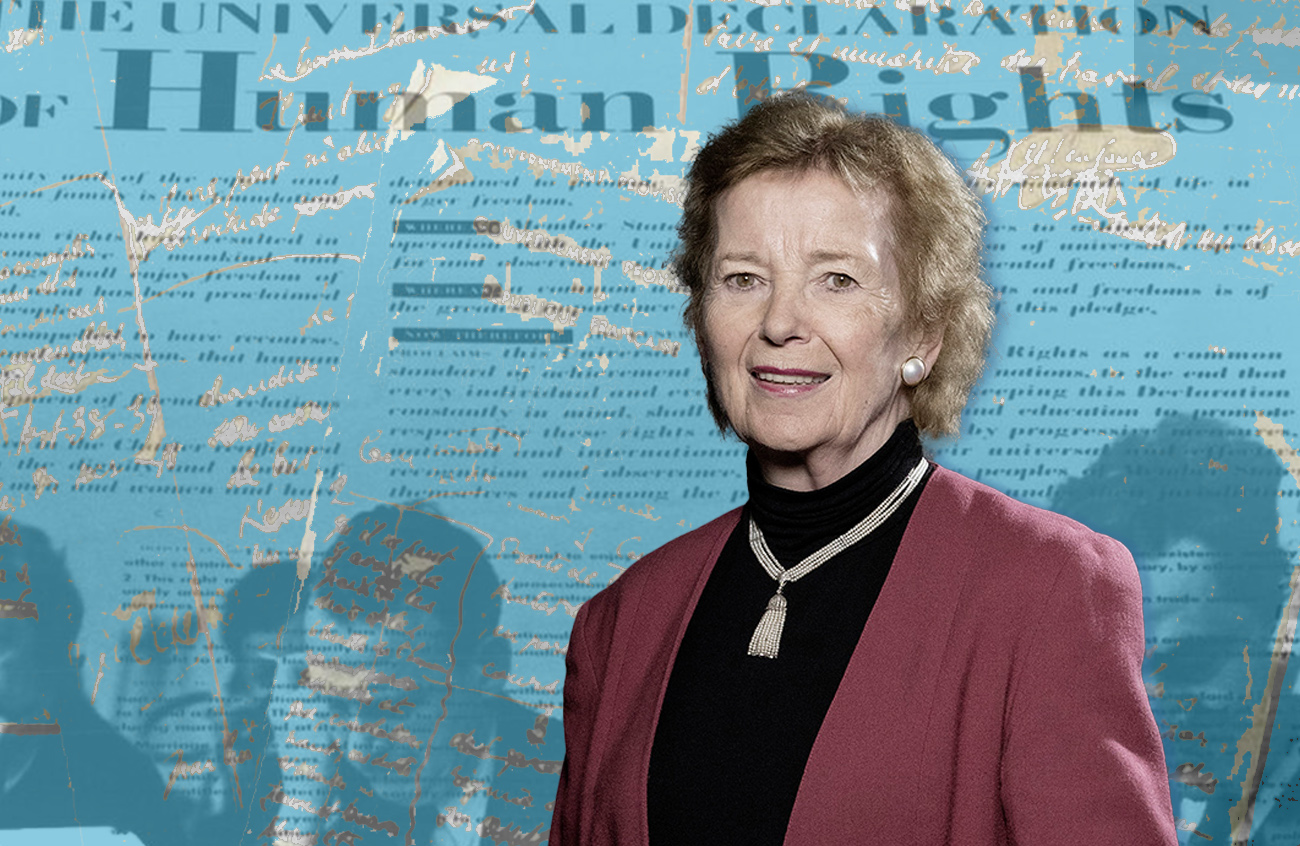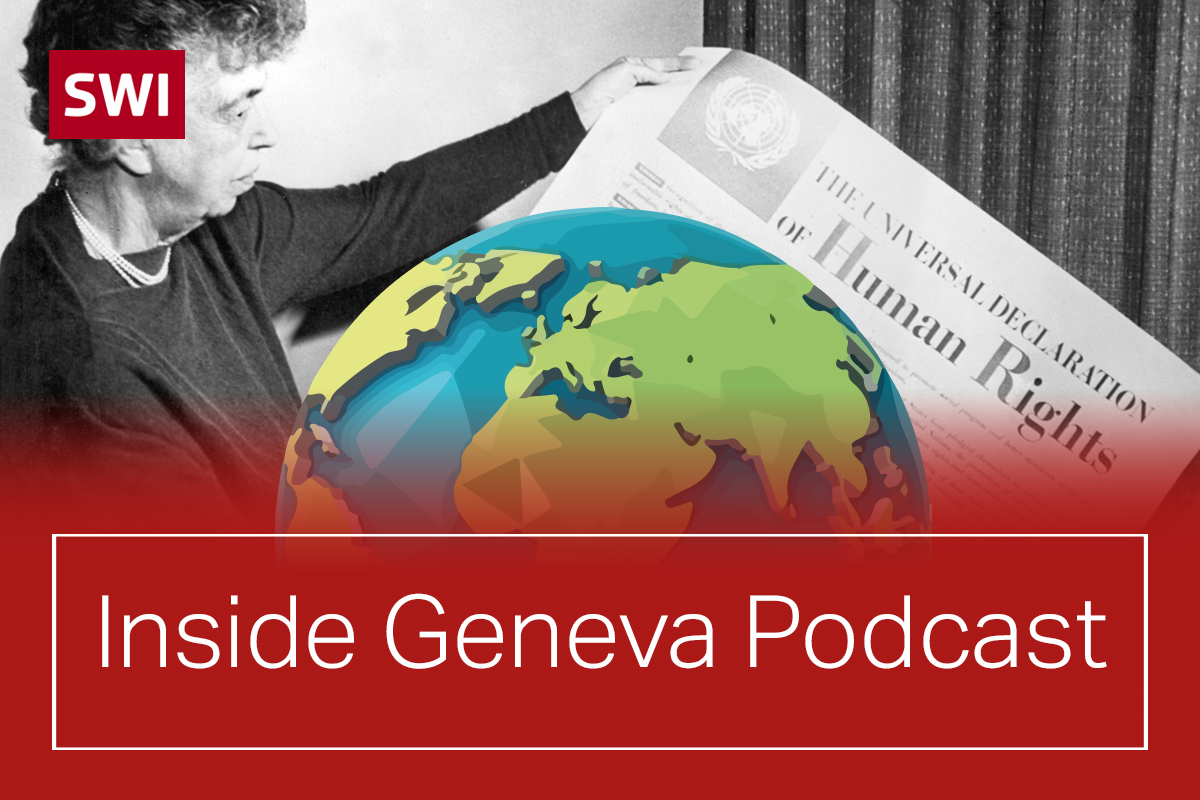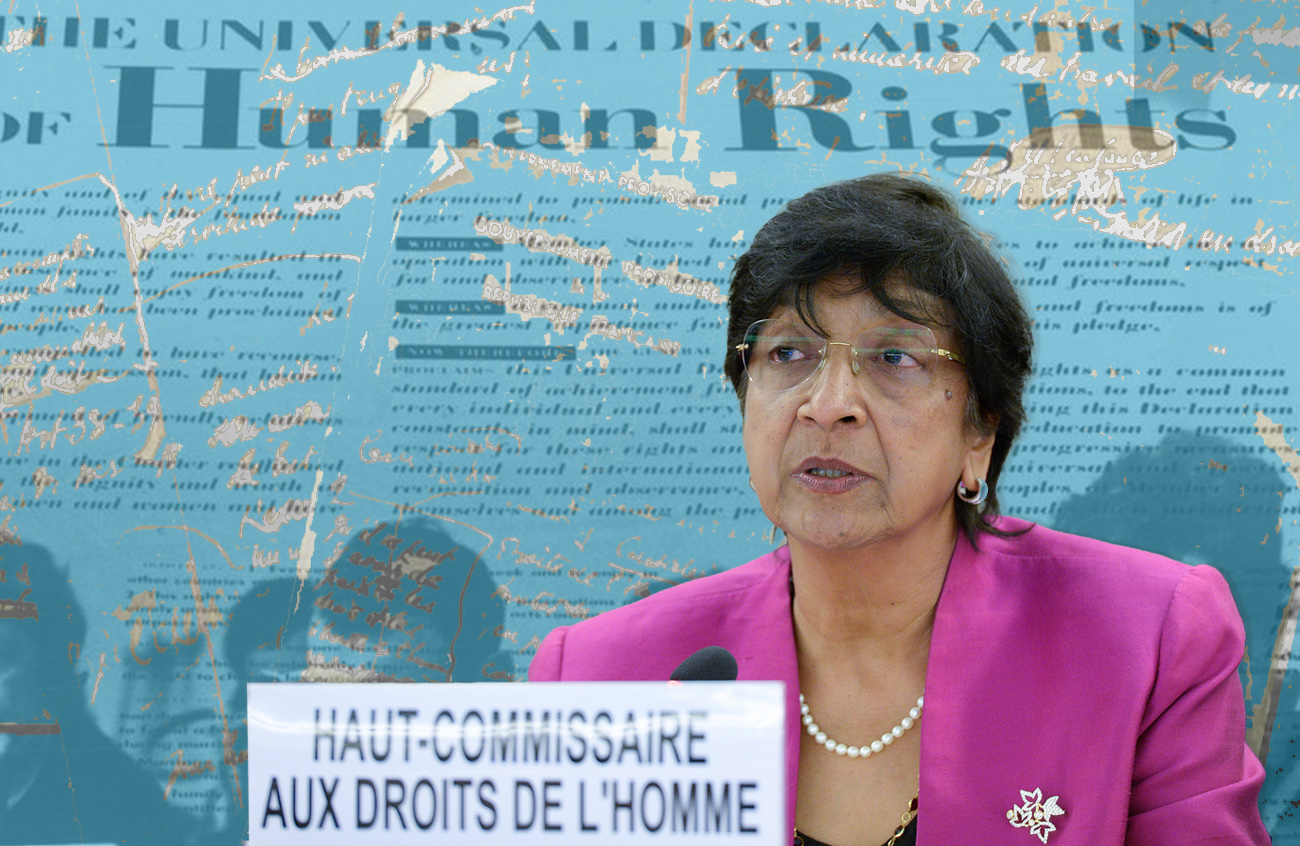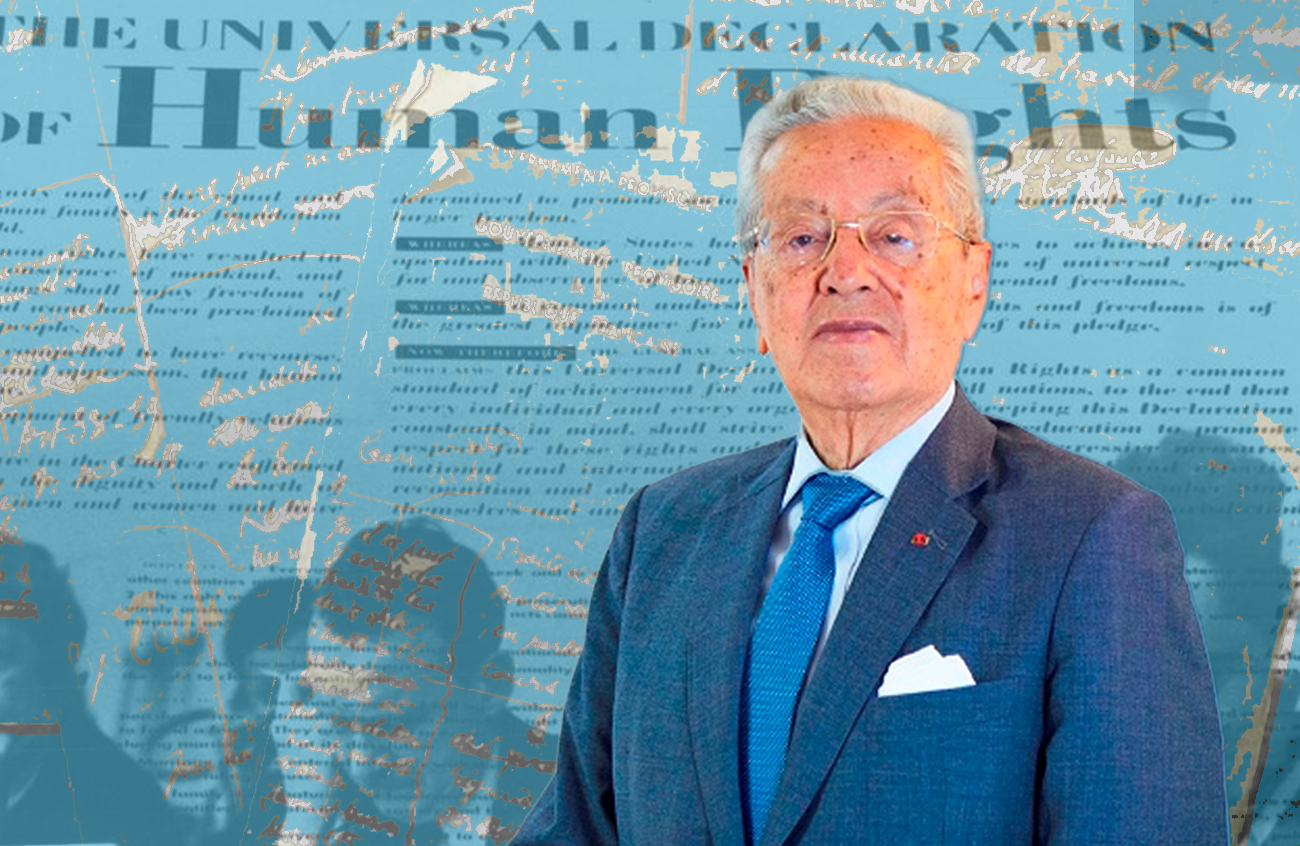Mary Robinson: ‘everyone has core human rights’

When she accepted the job of United Nations Human Rights Commissioner in 1997, Mary Robinson had already had a stellar career.
Growing up in 1950s Ireland, the one daughter among four sons, she remembers she had to develop “sharp elbows”, but that her parents assured her she would not be treated any differently from her brothers. She wasn’t, inside her family. Outside, in Irish society, things were different.
Studying law in Dublin, Robinson argued for an end to the ban on divorce, the legalisation of contraception, and the decriminalisation of homosexuality. By 1969, aged just 25, she had entered politics as a member of the Irish Senate. There, she continued her campaign. But trying to legislate her ideals was very different from debating them at university.
Throughout 2023, SWI swissinfo.ch has been marking the 75th anniversary of the Universal Declaration of Human Rights, a ground-breaking set of principles which has become the most translated document in the world. The current UN High Commissioner for Human Rights, Volker Türk, describes the declaration as “a transformative document […] in response to cataclysmic events during the Second World War.”
The very first UN commissioner, Jose Ayala Lasso from Ecuador, took office in 1994. Why did it take so long to appoint someone when the Universal Declaration was drafted in 1948?
Our Inside Geneva podcast has interviewed all the former UN High Commissioners for Human Rights (a job sometimes called the UN’s toughest) to hear their experiences, their successes, and their challenges.
There was “incredible outrage”, she remembers. “I got letters that were very disturbing.” Undeterred, she pressed on, even taking some cases to the European Court of Human Rights. Despite opposition, she also enjoyed enormous popularity, and in 1990 became Ireland’s first woman president.
Experienced, used to criticism, a tireless campaigner for fundamental rights and freedoms. Who better for UN Secretary-General Kofi Annan to pick as his next human rights commissioner? And yet, Robinson hesitated. “All my knowledgeable friends said, ‘you know Mary, I wouldn’t take that job’”.

More
Inside Geneva: human rights and those who defend them – Mary Robinson
Humiliation, exhaustion, and perseverance
She ignored them, and in 1997 accepted the role. Soon, the reservations of her friends appeared justified. Her first trip was to Rwanda, where a genocide had only recently claimed almost a million lives. Rwandans remembered the failure of the UN to prevent the violence, and Robinson, who had been welcomed in Rwanda as Irish president, remembers: “when I arrived wearing my UN hat they kind of humiliated me.”
Undeterred, she travelled on from Rwanda to Uganda, and then South Africa (where Nelson Mandela had become a good friend). Arriving back in Ireland, she felt exhausted and demotivated, not even wanting to see her family.
“I remember feeling to myself, I’m going to get on top of this somehow. This job is impossible, but somehow I’m going to get on top of it. And it got better.”

More
Navi Pillay: an intrepid fighter for rights and equality
Some successes, and many challenges
Robinson decided the best way to promote the UN’s human rights work was to visit as many countries as possible. She went again to Africa, she visited China – something most UN human rights officials have been unable to do – and even Tibet.
Then came an event an event which many hoped would allow the UN to shine: the World Conference against Racism, held in Durban, South Africa in 2001.
Robinson went to Teheran for a preparatory meeting for Durban, and that’s where things began to go wrong. It was not Robinson’s choice to hold the meeting in Iran, neither did she agree to the wording of the final document, some of which was widely regarded as anti-Semitic.
In the UN’s usual tortuous bureaucracy, all the contentious wording was in square brackets, meaning it hadn’t been agreed, and, in Robinson’s view, “would never be agreed”. Nevertheless, Israel and the UN were furious. The Durban conference began in controversy, and ended in debacle, when both the US and Israel withdrew.

More
José Ayala Lasso: ‘We should not lose our faith’
Today, Mary Robinson still feels the hurt and frustration of Durban. The final conference document, she still maintains, was visionary, setting down principles for the UN to combat racism. But she was accused in some sections of the US and Israeli press of being anti-Semitic, something she says was so far from the truth she failed even to defend herself.
Robinson left her post as UN High Commissioner for Human Rights in 2002, but continues to devote herself to human rights, now with a keen focus on climate change.
“Human rights are the answer. We need to understand that everyone has these core human rights, that all human beings are born free and equal in dignity and rights.”

In compliance with the JTI standards
More: SWI swissinfo.ch certified by the Journalism Trust Initiative









You can find an overview of ongoing debates with our journalists here . Please join us!
If you want to start a conversation about a topic raised in this article or want to report factual errors, email us at english@swissinfo.ch.